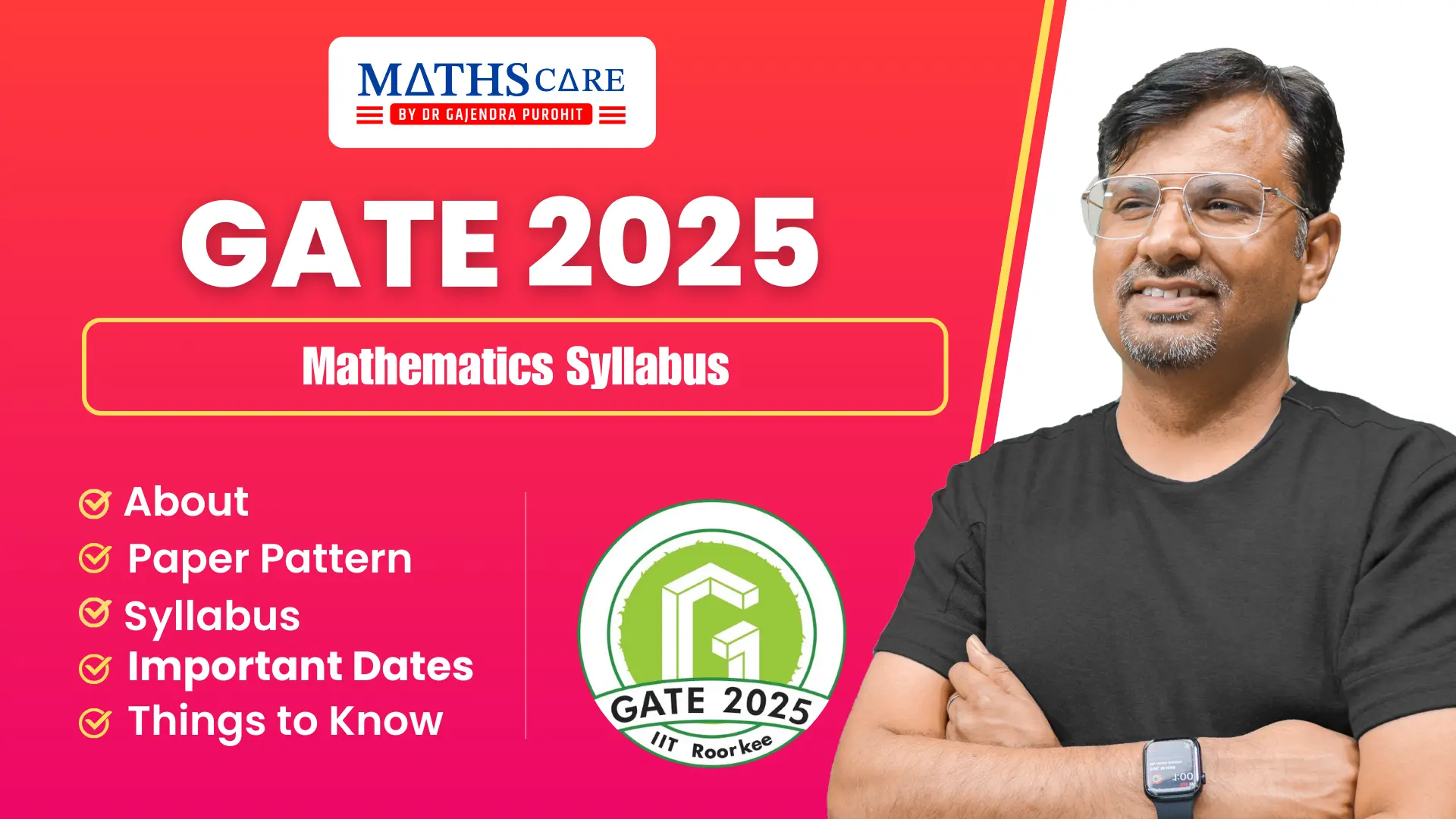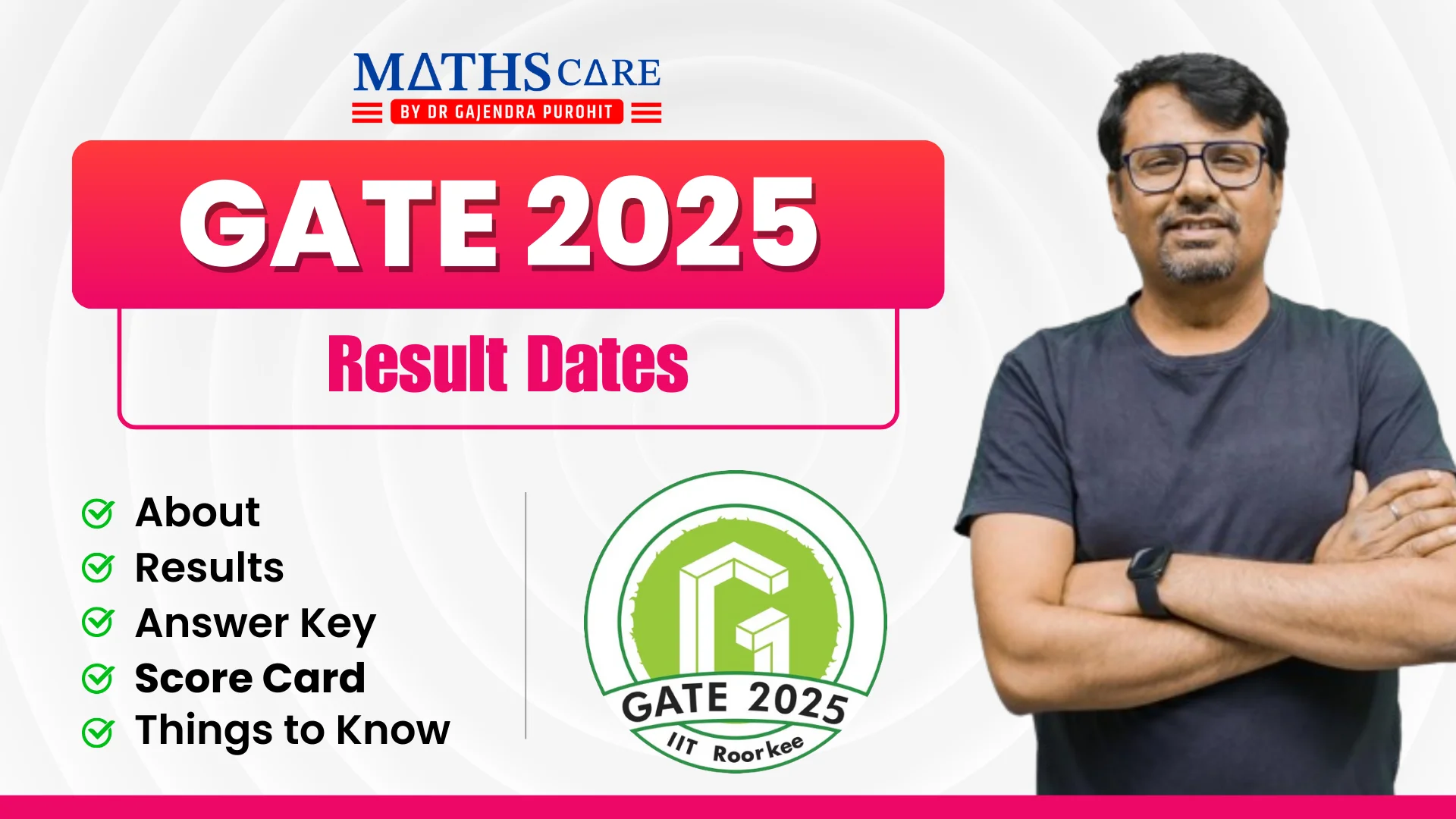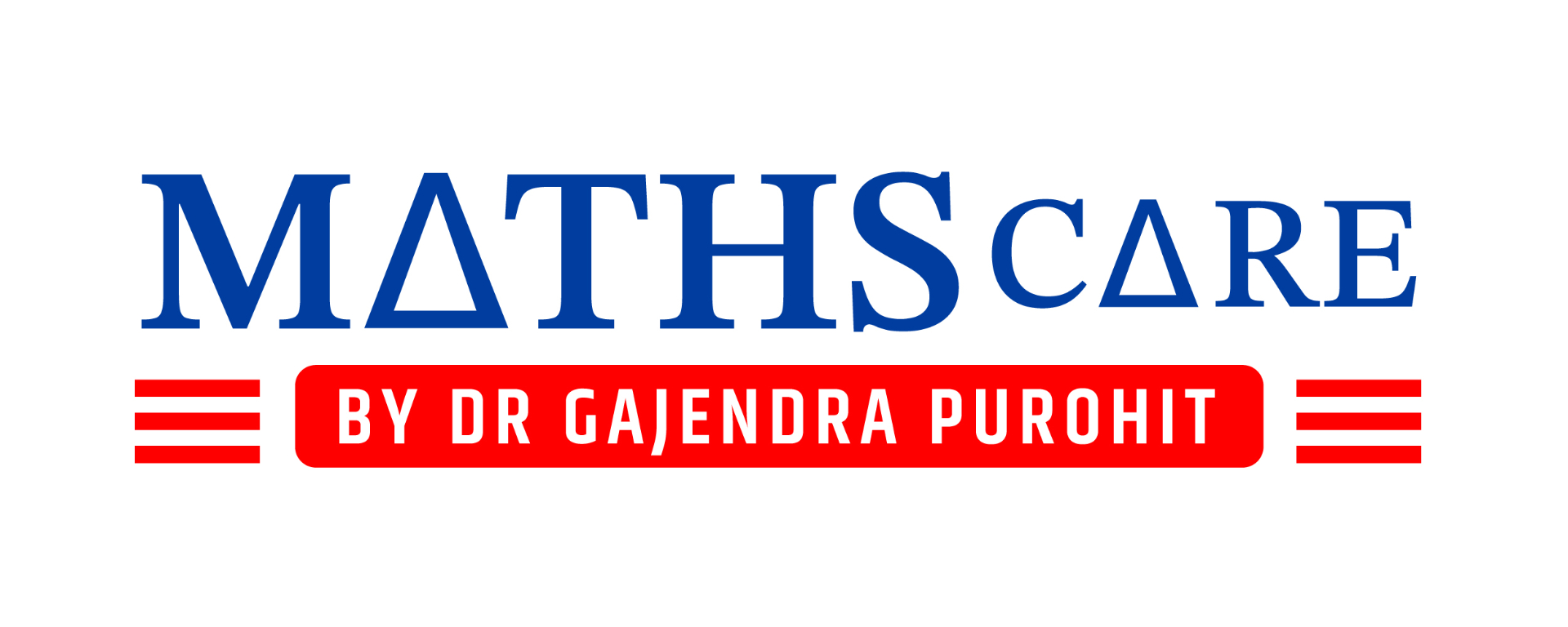GATE Exam 2025 Mathematics Syllabus
GATE (Graduate Aptitude Test in Engineering): The Graduate Aptitude Test in Engineering (GATE) is a prestigious national-level exam for aspirants looking to pursue higher studies or secure rewarding career opportunities in engineering and technology. Among the various disciplines, Engineering Mathematics holds a unique significance, as it is a scoring and conceptual subject included in most branches of the GATE syllabus. Understanding the importance of this subject, along with its extensive applications in real-world problems, is crucial for aspirants aiming for success in GATE 2025. This comprehensive guide covers the exam pattern, syllabus highlights, preparation strategies, and career prospects, equipping candidates to excel in one of the most competitive exams in the country.
Engineering Mathematics is not just about solving equations; it’s about developing analytical thinking and problem-solving skills that form the foundation for engineering disciplines. Its consistent weightage across various branches provides a strategic opportunity for candidates to score high with focused preparation.

1. About GATE 2025
The GATE exam is conducted annually to evaluate candidates’ understanding of undergraduate-level engineering concepts and their readiness for postgraduate studies or professional roles. Jointly organized by IISc Bangalore and the IITs on behalf of the National Coordination Board (NCB), GATE is recognized globally for its rigorous assessment standards.
In 2025, GATE will cover 30 subjects, providing a wide range of options for candidates from various engineering, technology, and science backgrounds. Scores obtained in GATE are valid for three years and are accepted for admissions to M.Tech, MS, and Ph.D. programs in prestigious institutions like IITs, NITs, and IISc. Additionally, leading Public Sector Undertakings (PSUs) utilize GATE scores for recruitment into technical and managerial roles, making it a gateway to lucrative career opportunities.
For most branches, Engineering Mathematics constitutes a core part of the syllabus, with a consistent weightage of 13-15 marks. This subject offers a unique advantage as its questions are often direct and formula-based, allowing well-prepared candidates to achieve high accuracy. Its applications in engineering problem-solving further highlight its importance, making it an indispensable part of GATE preparation.
2. GATE Exam 2025 Exam Pattern
Understanding the structure of the GATE exam is essential for devising an effective preparation strategy. GATE is conducted online as a Computer-Based Test (CBT), lasting for 3 hours and comprising a total of 100 marks. The question paper consists of three types of questions:
Multiple Choice Questions (MCQs): These questions provide four options, with only one correct answer. Negative marking applies for incorrect answers.
Multiple Select Questions (MSQs): These questions may have more than one correct answer. Unlike MCQs, there is no negative marking for incorrect selections.
Numerical Answer Type (NAT): Candidates must enter a numerical value as the answer. These questions require precision and calculation skills, but there is no negative marking.
The paper is divided into two main sections:
General Aptitude: A common section for all papers, carrying 15 marks, which tests verbal and numerical abilities.
Subject-Specific Section: This includes Engineering Mathematics and core technical subjects, contributing the remaining 85 marks.
The marking scheme assigns 1 or 2 marks per question, with penalties for incorrect MCQ answers. For Engineering Mathematics, topics like Calculus, Linear Algebra, and Differential Equations are given significant emphasis, making it a high-priority section for aspirants.
3. GATE Exam 2025 Syllabus for Engineering Mathematics
The syllabus for Engineering Mathematics is designed to test candidates’ analytical abilities and understanding of fundamental concepts. It spans a wide range of topics, each with extensive applications in engineering and technology. Below is an overview of the key topics:
Calculus
Calculus forms the foundation for understanding change, optimization, and accumulation. Key topics include:
Functions of multiple variables, continuity, partial derivatives, and maxima/minima problems.
Applications of double and triple integrals for calculating areas, volumes, and surface areas.
Vector calculus, covering gradient, divergence, and curl, along with integral theorems such as Green’s, Stokes’, and Gauss divergence.
Linear Algebra
Linear Algebra is essential for studying vector spaces, transformations, and systems of equations. It includes:
Matrix operations, eigenvalues, eigenvectors, and diagonalization.
Rank and nullity, along with the Cayley-Hamilton theorem.
Inner product spaces and orthogonalization using the Gram-Schmidt process.
Differential Equations
Ordinary and partial differential equations (ODEs and PDEs) form the backbone of mathematical modeling. The syllabus covers:
First-order and higher-order ODEs, including stability analysis using Lyapunov methods.
Laplace transforms and series solutions for solving differential equations.
Applications of PDEs in solving heat, wave, and Laplace equations.
Probability and Statistics
This topic focuses on uncertainty and data analysis, covering:
Probability distributions, mean, variance, and hypothesis testing.
Applications in statistical inference and decision-making.
Numerical Methods
Numerical techniques are crucial for solving equations and approximating solutions. Topics include:
Iterative methods for solving linear and nonlinear equations.
Numerical integration methods such as Trapezoidal and Simpson’s rules.
Euler and Runge-Kutta methods for solving differential equations.
Other Topics
Advanced topics include:
Real and complex analysis, with an emphasis on Taylor and Laurent series.
Topology and linear programming techniques for optimization.
Mastering these topics provides candidates with the tools to tackle a variety of problems in the exam and beyond.
4. GATE Exam 2025 Important Dates
Timely preparation and application require awareness of the key dates for GATE 2025. Here are the important milestones:
Application Start Date: August 2024
Last Date for Registration: September 2024
Admit Card Release: January 2025
Exam Date: February 2025
Results Announcement: March 2025
Candidates are advised to regularly visit the official GATE 2025 website for updates and notifications, ensuring they don’t miss any critical deadlines.
5. GATE Exam 2025 Preparation Strategy for Engineering Mathematics
To ace Engineering Mathematics, candidates must adopt a systematic and disciplined approach. Here’s a detailed strategy:
1. Understand the Syllabus
Familiarize yourself with the syllabus and prioritize high-weightage topics like Calculus, Linear Algebra, and Differential Equations. Understanding the scope of each topic helps in planning your preparation effectively.
2. Practice Previous Year Question Papers (PYQs)
Solving PYQs is indispensable for understanding the exam pattern and identifying frequently asked questions. Analyze these papers to gauge the difficulty level and focus on topics with higher recurrence.
3. Take Regular Mock Tests
Mock tests simulate the actual exam environment and improve time management skills. Analyze your performance to identify weaknesses and adjust your preparation accordingly.
4. Focus on Conceptual Clarity
Build a strong foundation by revisiting undergraduate textbooks and lecture notes. Topics like eigenvalues, multivariable calculus, and numerical methods require both theoretical understanding and practical application.
5. Allocate Time for Revision
Allocate dedicated time for revision and practice. Regularly revisiting key formulas and theorems ensures long-term retention and boosts confidence.
6. GATE Exam 2025 Career Opportunities
Qualifying GATE opens doors to numerous academic and professional opportunities:
1. Postgraduate Studies
Pursue M.Tech, MS, or Ph.D. programs at premier institutions like IITs, NITs, and IISc. These programs offer advanced learning and specialization in cutting-edge fields.
2. Recruitment in PSUs
Leading PSUs like IOCL, NTPC, and BHEL recruit GATE-qualified candidates for technical roles, offering lucrative salaries and career growth.
3. Research and Development
Contribute to R&D projects in emerging areas such as artificial intelligence, renewable energy, and computational sciences.
4. International Opportunities
Several foreign universities accept GATE scores for postgraduate admissions, providing global exposure and career advancement.
Conclusion
Engineering Mathematics is a vital component of the GATE exam, offering aspirants an excellent opportunity to secure high scores with focused preparation. By mastering the syllabus, practicing diligently, and adopting strategic methods, candidates can achieve their desired results. Success in GATE not only unlocks opportunities in academia and industry but also lays the foundation for lifelong learning and professional excellence. Start preparing today to make your GATE 2025 journey a triumphant one!
GATE FAQS
Log in using your Enrollment ID and password to download the application form.
The GATE committee is not responsible for admission processes. Institutions will decide based on their policies.
No, the EWS certificate is not needed during the GATE application process.
No, your application will be marked defective, and you’ll be notified to rectify it.
You will be notified via email or SMS to upload a corrected signature before the deadline.
BEST OFFERING COURSES FOR YOU
BEST BOOKS FOR IIT JAM/ CSIR-NET
BUY BOOKS ON OUR APP
RECENT POSTS

GATE Career Opportunities (Updates)

GATE 2025 Financial Assistance









